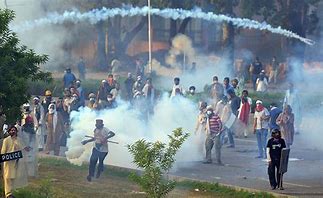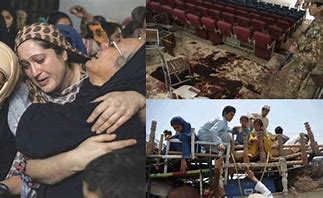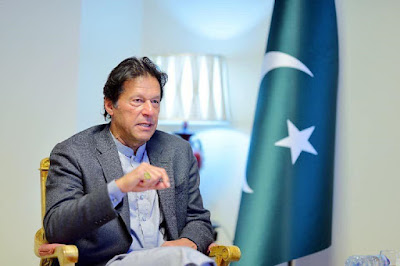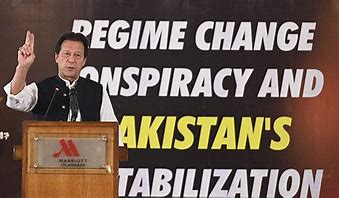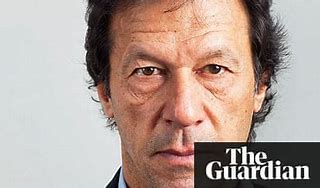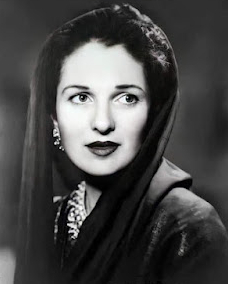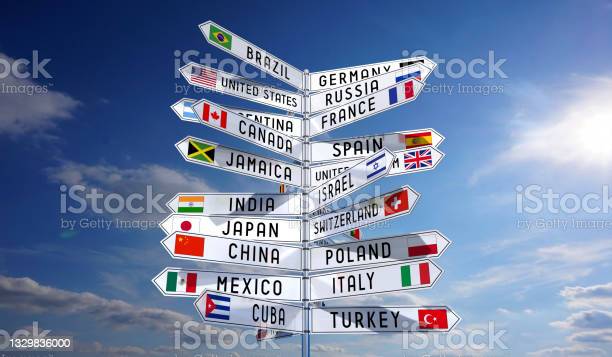In the complex landscape of modern governance, the relationship between the military and civil authorities holds a crucial role. This article defines the concept of civil-military relations, explores the delicate balance required for a thriving democracy, and examines the transition from a national security state to a development-oriented one. As globalization and social media reshape societal dynamics, particularly in nations like Pakistan, the article sheds light on the evolving aspirations of citizens and their shifting perspectives on governance and the role of the armed forces.
Introduction
Civil-military relations refer to the interaction between the armed forces and the civilian government in a nation. Striking a harmonious balance between these two entities is pivotal for the democratic control of the armed forces. This article focuses on the transformation from a national security state, where the military holds significant sway, to a development state, prioritizing the welfare of citizens.
Understanding Civil-Military Relations
Defining Civil-Military Relations
Civil-military relations encompass the interactions, dynamics, and power-sharing between the military and civil authorities. A healthy relationship ensures that the military serves the interests of the state and its citizens while respecting the supremacy of civilian governance.
The Importance of Balance
A balance between the military’s role in safeguarding national security and the civilian government’s responsibility for policy-making and governance is essential. Imbalances can lead to instability, usurpation of civilian authority, or hindered national progress.
The National Security State and Its Traits
In a national security state, the military often holds a dominant position, influencing governance and policy decisions. The focus is primarily on defence and security concerns, potentially sidelining other societal priorities.
In the book “Brave New World Order” by Jack Nelson-Pallmeyer, he outlines seven key traits of a National Security State. Let’s break down these characteristics in simpler terms:
- Military Dominance: In a National Security State, the military holds the most power. It not only ensures the country’s safety but also controls how society operates. This means the military has a say in politics, economy, and defence.
- Suspicion of Democracy: National Security States don’t fully trust democracy and elections. While they might seem democratic, the military or a larger security establishment holds the real power behind the scenes.
- Military’s Economic Influence: The military and related sectors have significant control over politics and the economy. They believe that true “freedom” and progress come only when wealth is concentrated among the elites.
- Constant Focus on Enemies: National Security States are always worried about enemies, both within and outside the country. Defending against these perceived threats becomes a major part of their identity and impacts their economy.
- Viewing Enemies as Cunning: These states see their enemies as clever and ruthless. They think any methods used to control or eliminate these enemies are justified, regardless of how extreme they might be.
- Limiting Public Participation: These states restrict public discussions and participation through secrecy and fear. They control information, define policies secretly, and implement them in hidden ways. They justify this by claiming it’s for a “higher purpose” or “national security.”
- Church’s Role: The church is expected to support the National Security State in various ways, including financially and ideologically.
In summary, a National Security State in the views of Jack Nelson-Pallmeyer, is characterized by military control, suspicion of democracy, economic influence, obsession with enemies, viewing enemies as cunning, limiting public participation, and involving the church in its agenda.
The Development State: A Paradigm Shift
Characteristics of a Development State
A development state prioritizes economic growth, social welfare, and citizens’ well-being. Governance is directed towards achieving sustainable development, reducing inequality, and improving the quality of life for all.
Divergence from National Security State
Shifting from a national security state to a development state requires recalibration of priorities, policies, and power dynamics. It entails emphasizing civilian governance and demilitarization of public life.
Global Examples: Military vs. Civilian Control
Case Study 1: Egypt
Egypt historically witnessed military dominance in politics. Transitioning towards a development-oriented state involved addressing societal aspirations, economic stability, and public welfare.
Egypt’s journey from military dominance to a focus on development is an interesting example of change in governance.
Egypt’s Historical Military Influence:
In Egypt, the military has held a strong grip on political power for a long time. This means that decisions and control over the country were largely in the hands of the military.
Transitioning to Development:
Shifting towards a development-oriented approach required addressing a few important areas:
- Societal Aspirations: People in Egypt wanted more than just military control. They aspired for better lives, improved opportunities, and a say in how their country is run.
- Economic Stability: A focus on development means ensuring that the economy is stable and growing. This involves creating jobs, reducing poverty, and supporting businesses.
- Public Welfare: Development is about improving the well-being of all citizens. This includes access to healthcare, education, and basic needs like clean water and housing.
Challenges and Changes:
Transitioning from military dominance to a development focus wasn’t easy. Challenges included:
- Balancing Power: The military had to share power with civilian institutions, which was a significant shift.
- Policy Changes: Policies needed to change to support economic growth and social welfare.
- Public Participation: People’s voices became more important in decision-making. Their needs and opinions had to be considered.
Impact on Egypt:
As Egypt started focusing on development, positive changes were observed:
- Improved Lives: Citizens experienced better access to healthcare, education, and basic services.
- Economic Growth: With a focus on the economy, Egypt’s financial situation improved, creating opportunities for its people.
- Democratic Progress: By involving civilians in governance, Egypt moved towards a more democratic system.
In summary, Egypt’s transformation from military dominance to development focus involved addressing citizens’ aspirations, stabilizing the economy, and improving public welfare. This shift brought positive changes and marked a move towards a more democratic and prosperous nation.
Case Study 2: Turkey
Turkey’s history includes several military interventions. Over time, a more democratic governance structure evolved, reducing military involvement in politics and bolstering civilian control.
Turkey’s journey from military interventions to a more democratic governance structure is an enlightening example.
Turkey’s History of Military Interventions:
In Turkey, the military has intervened in politics multiple times in the past. This means that the military interfered in the country’s government and decision-making.
Evolution towards Democratic Governance:
Over time, Turkey experienced a shift towards a more democratic way of governance. This involved a few important changes:
- Reducing Military Involvement: The role of the military in politics began to decrease. This means that the military became less involved in making government decisions.
- Strengthening Civilian Control: Civilian institutions gained more power and influence. This means that people elected by the public had more say in how the country is run.
Challenges and Progress:
Transitioning to a more democratic system came with challenges and positive developments:
- Balancing Power: Shifting power from the military to civilian authorities required careful navigation.
- Policy Changes: Policies needed to align with democratic principles, focusing on citizen needs and rights.
- Public Representation: People’s voices became central, and leaders needed to consider their opinions.
Impact on Turkey:
As Turkey moved towards democratic governance, several positive outcomes were seen:
- Enhanced Freedoms: Citizens experienced more freedom of expression and participation in decision-making.
- Political Stability: With civilian control, Turkey’s political landscape became more stable and predictable.
- International Perception: The country gained credibility on the global stage as a more democratic nation.
In summary, Turkey’s transition from military interventions to democratic governance involved reducing military involvement, empowering civilian control and enhancing freedoms. This transformation brought positive changes, leading to greater stability and recognition on the international platform.
Transitioning from National Security to Development
Reforms and Governance
Reforms in legal, political, and administrative frameworks are essential for enabling civilian institutions to assert their authority. Transparent and accountable governance paves the way for development-focused policies.
Empowering Civil Institutions
Strengthening civil institutions, such as legislatures and judiciaries, fosters democratic oversight. These institutions ensure that policies align with citizens’ interests and needs.
The Role of Leadership in Shaping Civil-Military Relations
Leaders play a pivotal role in shaping the course of civil-military relations. Leaders committed to democratic values and civilian supremacy contribute to a smoother transition towards development-oriented governance.
The DCAF Criteria for Democratic Control of Armed Forces
The Geneva Centre for the Democratic Control of Armed Forces (DCAF) outlines criteria for effective democratic control. These include transparency, accountability, and legality in military affairs.
DCAF, which stands for the Geneva Centre for Security Sector Governance, works to enhance safety and accountability in states and communities. Established in 2000, DCAF focuses on making security sector reform (SSR) policies and programs more effective worldwide.
Security Sector Governance (SSG)
Good security sector governance (SSG) is vital for both development and security, based on fairness and human rights. DCAF helps partner states improve their security sector governance by assisting in creating laws, institutions, policies, and practices. They use international norms and good practices while valuing fairness, local involvement, inclusive participation, and gender equality. DCAF also guides governments and international organizations in developing their programs to support states in enhancing their security sector governance.
Responsibilities of DCFA
DCAF offers new knowledge, promotes norms, gives advice on legal and policy matters, and supports capacity building for various stakeholders, including governments, civil society, and the private sector. With a presence in over 70 countries and recognized globally, DCAF is a leading source of expertise on security sector governance and reform. Based in Geneva, they also have offices in various locations worldwide. With a diverse team of over 220 experts from more than 40 countries, DCAF contributes to a safer and more accountable world.
Pakistan: Navigating Change in Civil-Military Relations
Pakistan’s history reflects oscillations between military rule and civilian governance. As citizens become more informed and demand development, the nation navigates towards a balanced civil-military relationship.
Globalization and Social Media: Catalysts of Change
Globalization and social media have amplified citizens’ awareness of their rights and options. Access to global perspectives empowers citizens to seek development-focused governance.
The Informed Citizens and Their Impact
Informed citizens compare their nation’s trajectory with others, demanding accountable governance and development. They resist being part of a national security state, emphasizing welfare instead.
Embracing a Development-Oriented Mindset
The path from a national security state to a development state requires a collective mindset shift. Prioritizing economic growth, social welfare, and participatory governance transforms the nation’s trajectory.
*Read more Unethical Practices Involving Agencies Over the Past 15 Months – Pakistan Desk Net
Conclusion
Striking a balance between civil and military spheres is a cornerstone of democratic governance. Evolving from a national security state to a development-oriented one is a challenging yet imperative transition. As Pakistan and other nations navigate this transformation, empowered citizens, informed leadership and inclusive governance lay the foundation for a prosperous future.
FAQs
1. What is the significance of civil-military relations in democratic governance? Civil-military relations determine the balance of power between civilian authorities and the armed forces, ensuring democratic control and stability.
2. How does a development state differ from a national security state? A development state focuses on economic growth, social welfare, and citizens’ well-being, while a national security state emphasizes military dominance and security concerns.
3. What role does leadership play in shaping civil-military relations? Leadership committed to democratic values and civilian supremacy facilitates the transition towards development-oriented governance.
4. How can globalization and social media impact civil-military relations? Globalization and social media empower citizens to demand accountable governance and prioritize development over a national security state.
5. Why is the transition from a national security state to a development state challenging? This transition involves recalibrating priorities, policies, and power dynamics to prioritize civilian governance and welfare over military dominance.
Reference: Civil-Military Relations in Pakistan: Quest for an Ideal Balance Brig. (R) Raashid Wali Janjua

